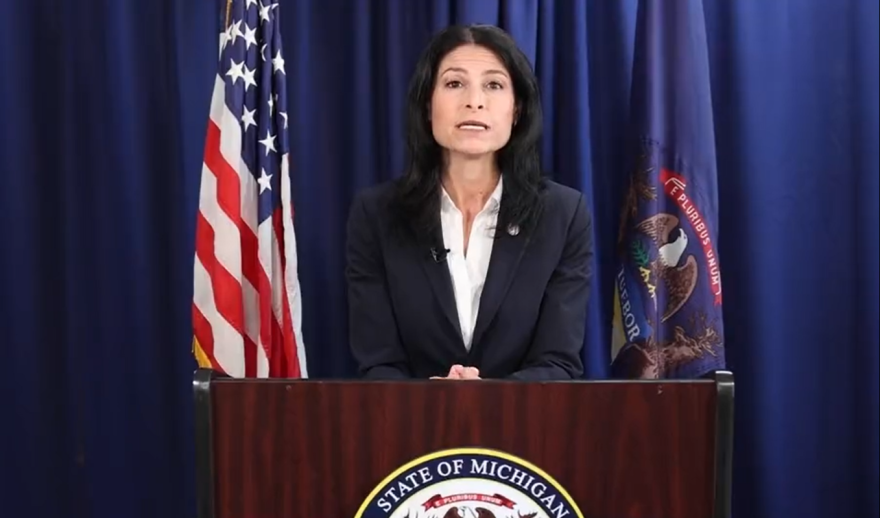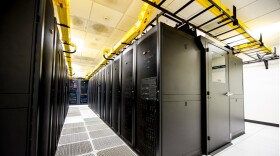Michigan Attorney General Dana Nessel continued her push Tuesday for the state’s energy regulator to open up a challenge to the plans for a massive new data center in Washtenaw County.
The governor’s office heralded the plan for the data center to support OpenAI’s Stargate project, calling it the largest investment in the state’s history.
DTE Energy has asked the Michigan Public Service Commission for expedited approval of two contracts for it to supply the 1.4 gigawatts of electricity the data center is expected to use.
But Nessel’s office intervened, asking the commission for a contested case hearing to gather more details.
“This does appear to be a rush job,” Nessel said during an online roundtable discussion Tuesday. “It does appear as though the intention of the public service commission is to rubber-stamp whatever DTE wants.”
A spokesperson for the Michigan Public Service Commission declined to comment because the case is still pending.
In its filing, DTE Energy said the contracts could be approved by the public service commission without notice or hearing because they “will not increase the cost of services to the Company’s customers.”
Neal Foley, director of electric marketing for DTE, submitted testimony to the commission in support of the contracts. He said the first contract would run through 2045, and even if the electricity demand was less than initially planned, the data center operator would still be required to pay for 80% of the maximum capacity.
“A roughly 19-year PSA contract duration represents a significant commitment on behalf of the Customer to the Company and its other customers,” Foley said. “It ensures that the Customer will make their proportionate contribution to the Company’s system costs for a longer period than the Company normally requires of its customers.”
As a number of new data center proposals have come to light in Michigan, residents in local communities have expressed concerns about their electricity usage, and whether the increased load would lead to higher rates for regular residential customers.
DTE argues the long-term contract and minimum billing requirement would help ensure that the data center operator — technically Green Chile Ventures, a subsidiary of the tech giant Oracle — would pay the full cost of the added load.
But Nessel said residents shouldn’t just have to take DTE at its word.
“Normally when utilities seek to raise rates or recoup costs of services, they go through a months-long process before the MPSC,” Nessel said. “And the public can scrutinize these cases alongside experts in the field, consumer protection organizations, industry advocates and environmental advocates.”
Nessel spoke on the call along with others from environmental groups and industry watchdogs, who also expressed concerns about the request for expedited approval of the contracts. While the first contract requires a long-term agreement and minimum billing, the second contract under consideration would require Green Chile Ventures to pay for energy storage systems — large scale batteries, essentially — to back up the data center, according to DTE.
During the attorney general’s roundtable discussion Tuesday, others expressed concerns that the data center, and others like it, would cause utilities such as DTE to build new power generating plants that use gas instead of renewable energy sources.
“What we would like to see is commitments from the data centers to build and pay for renewable energy to power their operations,” said Charlotte Jameson, chief policy officer for the Michigan Environmental Council. “If they want to be good corporate citizens in Michigan, they need to be part of helping us meet our climate goals.”
Nessel said a public hearing in a contested case is where these concerns could be raised in front of the public service commission that will ultimately decide whether to approve the contracts.
Michael Moody, a division chief in the attorney general’s office, said the request for approvals for the proposed data center was unlike any he’d seen before.
“This is kind of unheard of to have someone just say, ‘Hey, here’s the contract, believe us, trust us, this is it and this will protect you,'” Moody said. “It’s not done that way.”
Editor's Note: DTE is one of Michigan Public’s corporate sponsors.






